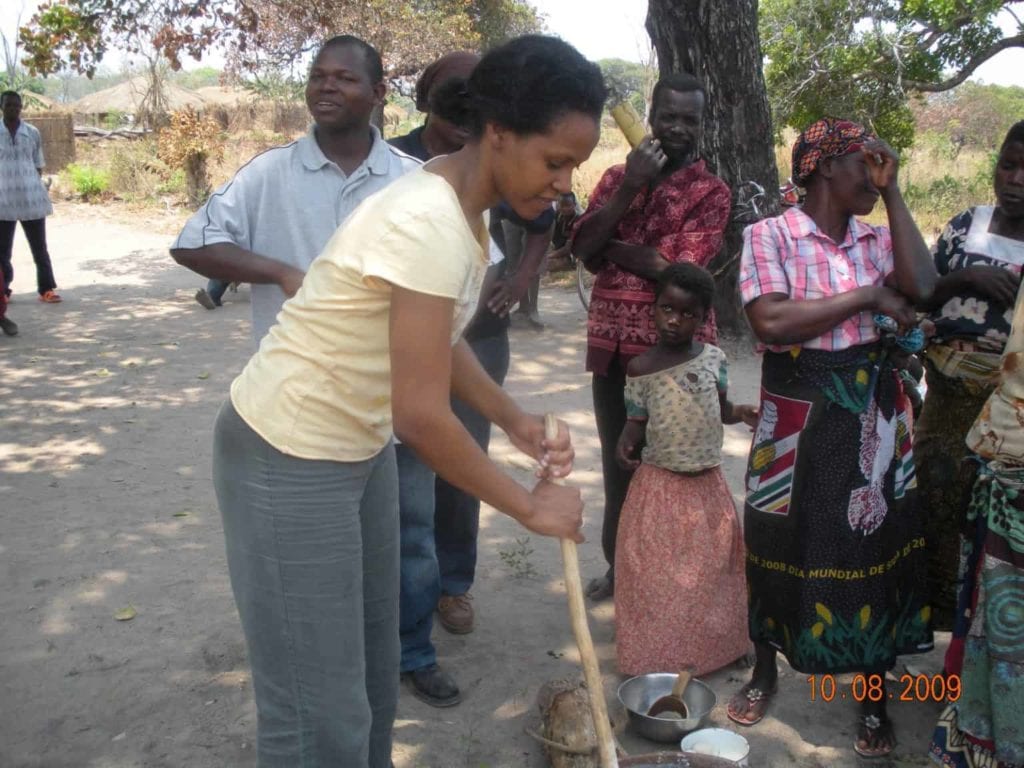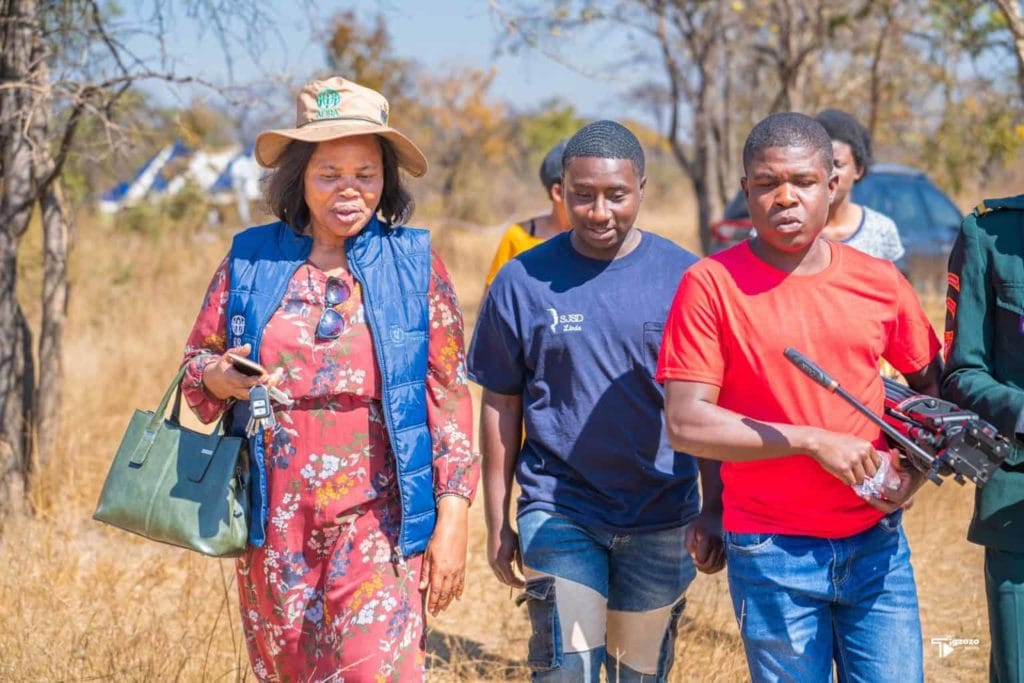
The Adventist Development and Relief Agency (ADRA) honored International Women’s Day on March 8 and National Women’s History Month by spotlighting the amazing stories of the organization’s female leaders. The United Nations designated the 2024 Women’s Day theme as the year to inspire inclusion and invest in women’s progress.
For more than 40 years, ADRA women have made significant contributions to worldwide communities by encouraging inclusion and empowerment through initiatives focusing on education, health care, and economic development. ADRA has played an important role in providing opportunities and fostering participation for women in underserved communities.
“We are proud to celebrate the remarkable achievements of our women leaders. Their stories remind us of the incredible potential and power that women hold. By promoting inclusion and providing equal opportunities, we can create a more just and prosperous world for everyone,” Sonya Funna Evelyn, ADRA International’s vice president for sustainable development, said.
The women featured in this release illustrate the strong network of female humanitarians whose contributions advance ADRA’s global mission to accelerate progress.
Maja Ahac, Head of Advocacy for ADRA Europe
Maja Ahac dedicates her life to advocating for those who are stripped of their voice — the refugee, the child, the woman. She is driven in her work by a passion for encouraging women of all ages to persevere in their dreams.
While Ahac spends her days fearlessly championing women, her role as a mother is what inspires her work.
“I’m an ADRA worker, but I’m also a mother. I’m a mother of one girl and two boys. It’s important to me that all my children have equal opportunities. And this is what I want for all other children and all other women. We cannot be defined by gender and be told ‘this is what you can do’ or ‘this is what you cannot do.’ ”
Ahac has encountered hundreds of women from all around the world throughout her work with ADRA. She vividly remembers her experience with a mother named Elisabeth during a new school ceremony in Burundi. While the rest of the village celebrated their school, Elisabeth stood to the side, watchful, nursing her baby.
Ahac approached Elisabeth and asked what she thought of the new school. Ignoring the question, Elisabeth instead looked at Ahac and said, “It is so good that you visited us. A woman. You showed our girls that women can also manage projects. Leading organizations. Be managers and leaders.”
Ahac, along with many other humanitarians who serve with ADRA, inspires women every day with her work. Yet, if you ask her, she will tell you that she is even more inspired by women like Elisabeth, who touched her life.



Sonya Funna Evelyn, ADRA International Vice President for Sustainable Development
Sonya Funna Evelyn is courageous and committed, and for 16 years she has been inspiring the women she reaches through her work with ADRA, and those who work within the ADRA network.
Born in Sierra Leone, Evelyn developed a strong desire to help others from an early age. Immigrating to the United States as a child gave her access to education and opportunities that her family back home didn’t have. Seeing how her family in West Africa had to deal with additional challenges ranging from famine to violence inspired Evelyn to pursue a career in humanitarian service and work for ADRA.
“The most important lesson I have learned in this work is that all over the world, people are the same. We all want the same things out of life. The only difference is in our ability to access those things,” she says.
Evelyn has witnessed considerable growth and shifts within ADRA over her tenure. Through it all, women have been at the center.
“The women who work at ADRA are special because they have signed up to face tremendous challenges. And without them, without us, this organization would not be what it is. And so, we can’t talk about where ADRA is going in the future if we don’t also talk about female leadership.”
Evelyn is an integral part of ADRA’s leadership. She joined the organization as a technical advisor for health, and now, as a vice president, she provides strategic leadership for future growth as ADRA implements a new global strategic framework.
As she outlines ADRA’s evolution over the past several decades, Evelyn says, “It’s not something that happens by accident. It’s because the strength of women collectively can achieve immeasurable things. And if you even look at the work that we do in the field, the data shows that if you want to effectuate change in a community, give money to the women. Because women will reinvest in their houses, they are invested in their households, they are invested in their children. And they have the strength to change entire communities.”
Leiza Augsburger, Programs Director at ADRA Switzerland
Leiza Augsburger studied law, but even after graduating, she realized it was not the career she wanted to pursue because her true passion was working with and near people. That’s when Augsburger first discovered ADRA, and she’s never looked back.
Augsburger has served in several roles with ADRA, including country director for ADRA Togo. She finds inspiration in making others, particularly women, feel noticed and recognized. Augsburger enjoys telling the story of how she met a group of women in Togo.
“I met some women from one program in Togo, a literacy program, and they were so excited to show me that they were able to use their cell phones and to enter my number in their cell phones by themselves,” Augsburger recalls.
Of course, most people in Africa have a cell phone and know how to use it. But these women couldn’t read and had never been able to operate their phones independently.
While to many this may seem like a trivial thing, Augsburger recognizes that nothing that provides dignity for a person is trivial.
“I believe that one of ADRA’s most powerful impacts is that our work gives people the opportunity to exist,” Augsburger says. “See, sometimes beneficiaries feel like they are transparent. Nobody sees them. And then ADRA comes in, maybe with a small project that doesn’t seem too significant to us, but what we did is recognize that the people we served are human beings. And we give them the opportunity to grow.”
Judith Musvosvi, Country Director for ADRA Zimbabwe
Judith Musvosvi has been dedicated to the mission of providing humanitarian aid for more than a decade. She joined ADRA in 2013 as the country director for Zimbabwe. During her time at ADRA, she has managed hundreds of projects and directed numerous emergency response efforts. What inspires her the most is how ADRA’s network comes together time and time again to bring light into the darkest situations.
When asked about her experience working with the ADRA network, Musvosvi invariably mentions her Adventist family. The organization is proud to be a member of a global network that includes thousands of Seventh-day Adventist congregations that quickly band together during times of crisis.
“What sets ADRA apart is what we can achieve as a network and family,” Musvosvi says. “That beats anything that we would be able to accomplish as individuals.”
Musvosvi has witnessed the fortitude of ADRA’s family when dealing with challenges in her own country. Her team is frequently the first to respond and deliver aid, thanks to strong partnerships with local Adventist churches and other nonprofit organizations.
“What I would like the people to know about ADRA is that those of us who work for and with ADRA are genuine about the work we do. The thread that runs through us is that of being genuinely concerned about people,” Musvosvi says.
ADRA hopes that sharing the experiences of female leaders within its global network will foster acknowledgment and appreciation of women’s achievements around the world.
The original version of this story was posted by ADRA International.